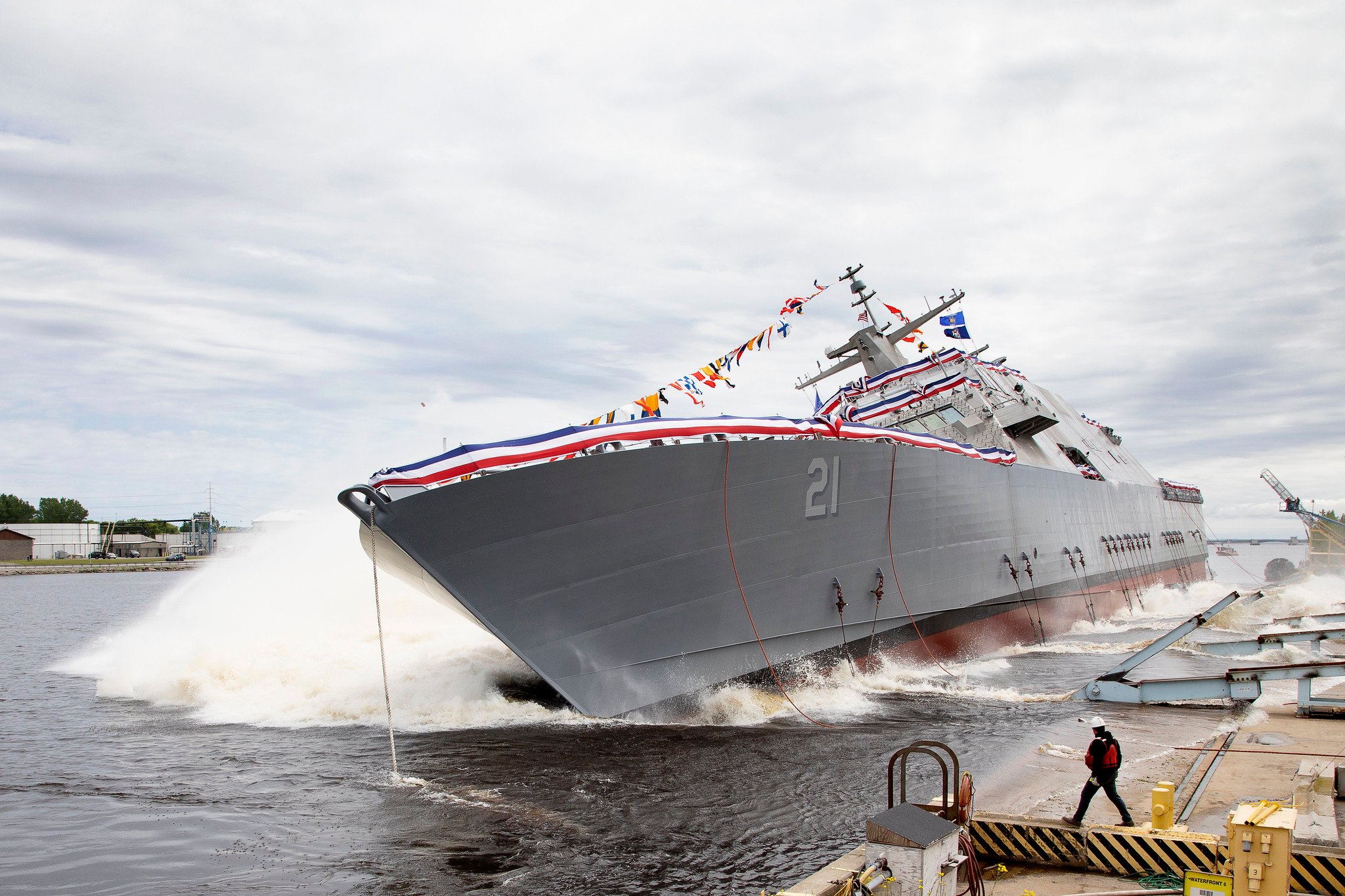
NATIONAL HARBOR, Md. – The Navy is putting Littoral Combat Ship Minneapolis-Saint Paul (LCS-21) back together after completing a repair to beef up the complicated gearing mechanism that links the ship’s gas turbines to its diesel engines, service officials told USNI News on Monday.
In January, the Navy stopped taking delivery of the Freedom-class from Lockheed Martin after determining the RENK AG-built combining gear was under-engineered following a string of high-profile failures. In total, 13 Freedom-class LCS require the fix to the complicated gearing mechanism deep in the heart of the hulls.
The ships affected are now restricted by Naval Sea Systems Command to using either the ship’s diesel engines or its MT-30 gas turbines, but not both – keeping the ships from their 40 knot top speed.
The Navy, Lockheed Martin and RENK AG tested a fix for the gearing in March in Germany and are finalizing the repairs on Minneapolis-Saint Paul at Escanaba. Mich., where the ship was taken to free up space at Fincantieri Marinette Marine in Wisconsin.
“It’s a very complex fix to replace the bearings on the combining gear. It’s a very tight space, there’s a lot of interferences that have to be removed,” said LCS deputy program manager Howard Berkof on Monday. “We completed that, we’re in the process of putting the ship back together and we will conduct at-sea testing of LCS 21 in the September timeframe.”
The Navy, RENK and Lockheed Marin have devised three ways to potentially repair the gear. One requires a hull cut in the middle of the ship, while a second unvalidated repair replaces the bearings without removing the gear. The third, which was used on Minneapolis-Saint Paul, involved dropping the gear to the mission bay where the ship’s small boats will reside and removing the gear through the door in the aft of the hull, officials told USNI News.
The next steps will be to test the fix in the Great Lakes by putting the repaired gear through a series of elaborate propulsion drills for both Minneapolis-Saint Paul and under-construction USS Cooperstown (LCS-23). The goal would be to validate the repair on both ships and leave the Great Lakes before the path to the Atlantic freezes.
“We expect to validate the combining gear year effects at sea and at which point we will continue to implement with providing our fix across new construction and in-service ships in that, that those details are still being worked,” Berkof said.
The repairs will be included in the under-construction USS Marinette (LCS-25), USS Nantucket (LCS-27)
Beloit (LCS-29), the final Freedom-class ship, USS Cleveland (LCS-31), will be outfitted with a fully corrected combining gear.
How the rest of the fleet of Freedoms will be repaired and who will pay for it is still an open question. The complexity of the repair, as currently devised, will take years to trickle into ships already in the fleet, Berkof said.
While the contract repair for the yet-to-be-deployed ships has been determined, the Navy and Lockheed Martin are still negotiating how the fixes will happen and how they will be paid for, he said.
The two Freedoms not affected by the NAVSEA restrictions are USS Freedom (LCS-1) and USS Fort Worth (LCS-3). The two original hulls were built with a different mechanism, built by U.S. company Philadelphia Gear, to join their turbines and diesels.
The Navy has asked to decommission both ships, with Freedom slated to leave the fleet in September.





